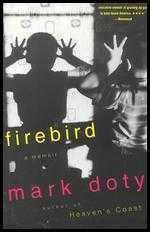Rob’s Home
Image from bookweb.kinokuniya.co

Wrote a new chapter of my novel today. Before today I was up to about 75 pages (but now I’m at 82!!) But then I went back, to about page 50 or so and wrote a new, short chapter. It takes place after the main character's father has a heart attack. This, remember, is a story taken from my collection (that I am now turning into a novel). In the original story the character never really deals with his father's heart attack--I mean he never says how it makes him feel, what he thinks about it, is he angry? Scared? Sad? Happy? And I've been called on that before. not that I don't think it was a good story, because it was-- and maybe it originally worked for the story having the character gloss over (he's the narrator) his true feelings, fears, insecurities, doubts, relief about his father's heart attack--after all, this character has trouble saying what he feels. (The theme of the story is communication, or lack thereof, with his exchange student, with his family, with himself.) but now that I'm turning it into a novel I have more room to express these things.
I now have the time to open up this character, or more specifically, to let him open up and express himself more. So that's what I did today. Only I did it as a dream. He has a dream the day after his father's heart attack. And I have to say, it was quite liberating even to write out his dream. Because dreams do say so much about a person. Dreams are mysterious and strange, and fun to try and decipher. Those who know my writing know that I'm not too abstract or experimental, and so this dream is also not too out there or experimental either. But it's strange. And it's funny. And it's a bit sad. It also really ties in thematically to the rest of the novel, while at the same time helping to show/explain what the boy/narrator is feeling about his father's illness.
It is only about 6 or 7 pages long and was alternately thrilling and exhausting to write. but that's what the process of writing should be like, right?
As I may have mentioned before, I like to have books around me when I write (well, now I'm writing in the library so that's kind of a given). But I mean books that inspire me. Books that I love. So for the past couple of weeks I've been taking Mark Doty'smemoir "Firebird”, with me. It's Doty's story of growing up gay with his mother and sister, travelling from Memphis to Tuscon, Florida to California.
From the book jacket: "...Doty tells the story of a ten-year-old in a top hat, cane, and red chiffon scarf, interrupted while belting out Judy Garland's "Get Happy" by his alarmed mother at the bedroom door, exclaiming, "Son, you're a boy!"
Omigod. I thought I was the only one who did that!
Ahem. Anyway, I came across this incredible two paragraphs today. And though my book is 'fiction,' there are some autobiographical moments in it--there always is a little bit of you in what you write, right? Anyway, I found these two paragraphs from "Firebird" to be so very very helpful with my writing. It's about writing about family.
"Childhood's work is to see what lies beneath. Under my family's surface, I could feel the buried foundations, the desires or disruptions, the longings and unfulfillments. I watched for the ways they'd push up, heave against the plain surface of the days. I learned to look out for the dangerous
outcroppings, and if I couldn't know what they meant, I couldn't miss the ways these histories colored the present, intruding into today.
Aren't our parents always mysterious to us, mounded fields in which we can barely read the forming architecture beneath? What can't be seen troubles the earth, contours of an old city. What is buried? The child senses moments of pressure, outbreaks of something important. And later it's the same: even as adults, the work of understanding our parents is archaeological; what shaped them, we ask, who gave me shape? What's the history of the two people who are the origins of history, that shrouded beginning point whose evidence I handle now, holding the broken bits to
daylight?
Begin with the stories they tell about themselves."
I had the immense pleasure of meeting Mark Doty when I read with his partner, the talented Paul Lisickyfor the anthology M2M: New Literary Ficion (in which Paul and I had a story).



No comments:
Post a Comment